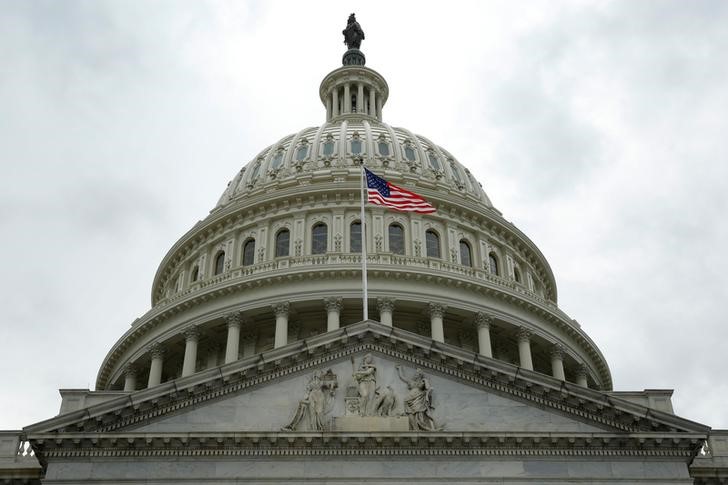(Bloomberg) -- Senate Republicans are proposing curbing the Federal Reserve’s ability to expand or create lending programs for businesses, states and local governments as part of an effort to free up funding for a new coronavirus stimulus bill.
A slimmed-down virus relief bill that Senate Republicans released Tuesday and plan to vote on this week would be partly funded by reducing a Cares Act appropriation passed in March from $454 billion to $250 billion. The Fed, working with the Treasury Department, has used $195 billion of that money to create lending programs to help businesses, corporations and local governments.
President Donald Trump on Friday said Congress should authorize sending taxpayers checks from about $300 billion in left over funds.
“We have $300 billion sitting in an account that we didn’t need,” Trump said at a news conference. “It would be a very appropriate thing to release that to the American people, and I am willing to do it.”
Senate Majority Leader Mitch McConnell released a slimmed-down fiscal package after weeks of stalled negotiations with Democrats on another round of stimulus. The bill would spend $500 billion to $700 billion, but cost substantially less when the Fed reductions are factored in. It’s a far cry from the $2.2 trillion relief that Democrats want.
The cornerstone of the Fed’s Covid-related facilities is the Main Street Lending Program. The Treasury Department committed $75 billion to backstop potential losses, which the Fed can lever up to $600 billion in loans to businesses, however the strict terms have limited the take-up. The central bank has only extended $1.2 billion in loans so far.
The $2.2 trillion Cares Act signed into law in March appropriated $500 billion to the Treasury Department’s economic stabilization fund. Of that, $29 billion was carved out for direct lending from Treasury for passenger and cargo airlines, and $17 billion for firms critical to national security, which remains largely untapped.
The remainder of the fund is meant to cover potential future losses in the Fed’s lending programs. The Treasury Department has committed $195 billion of that to Fed programs that are up and running.
The federal government has until the end of 2020 to pledge that money. The Republican bill “the would terminate the emergency authority and claw back any unused money beginning next year.”
©2020 Bloomberg L.P.

